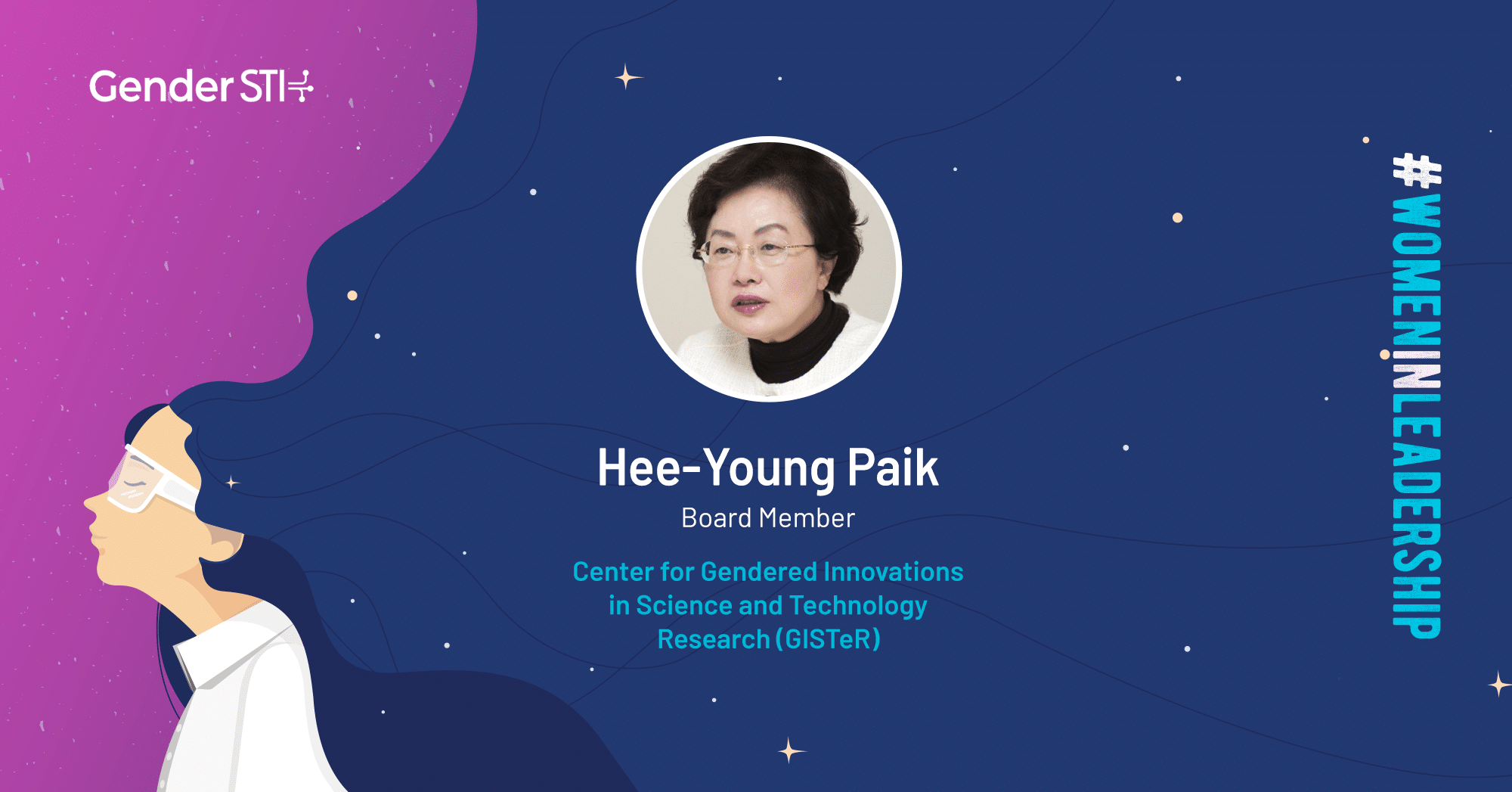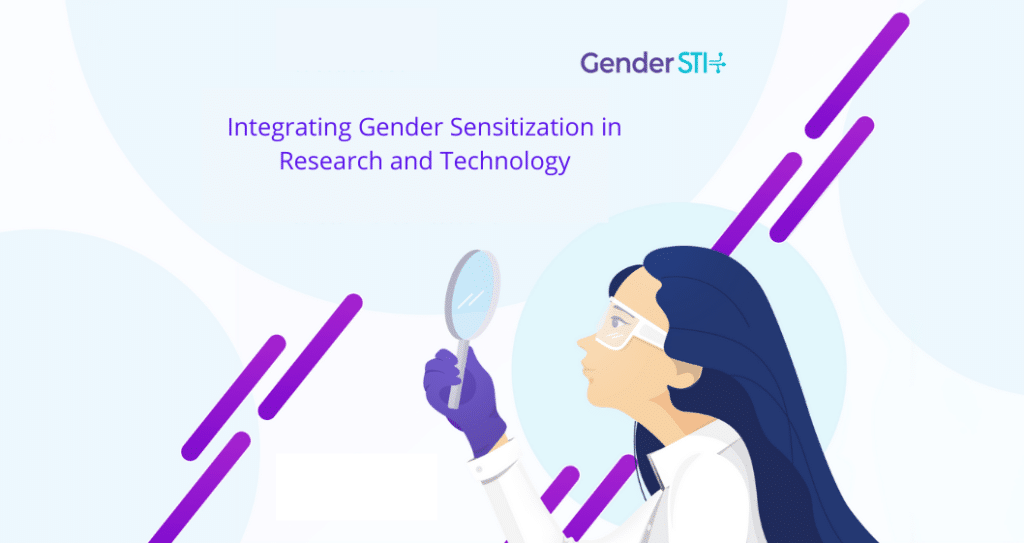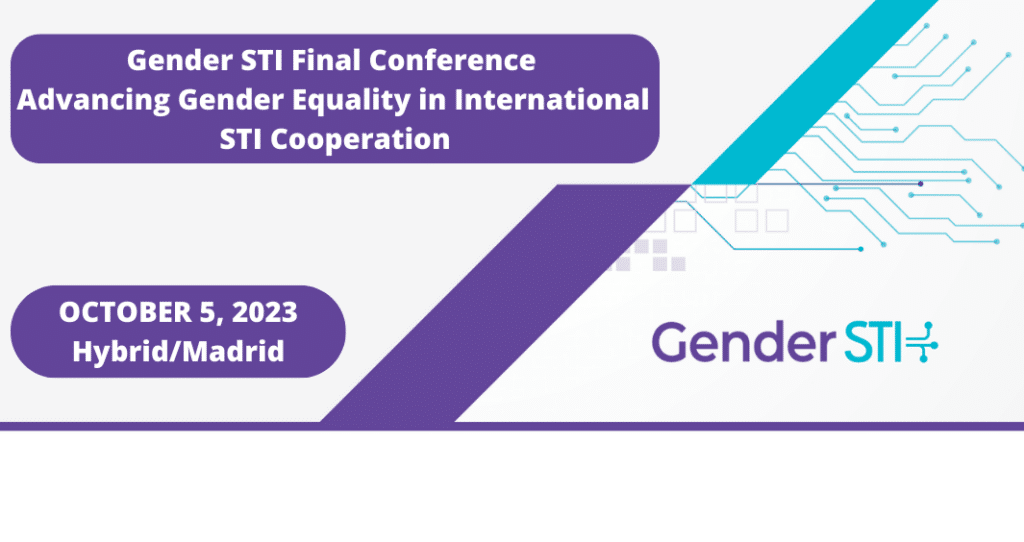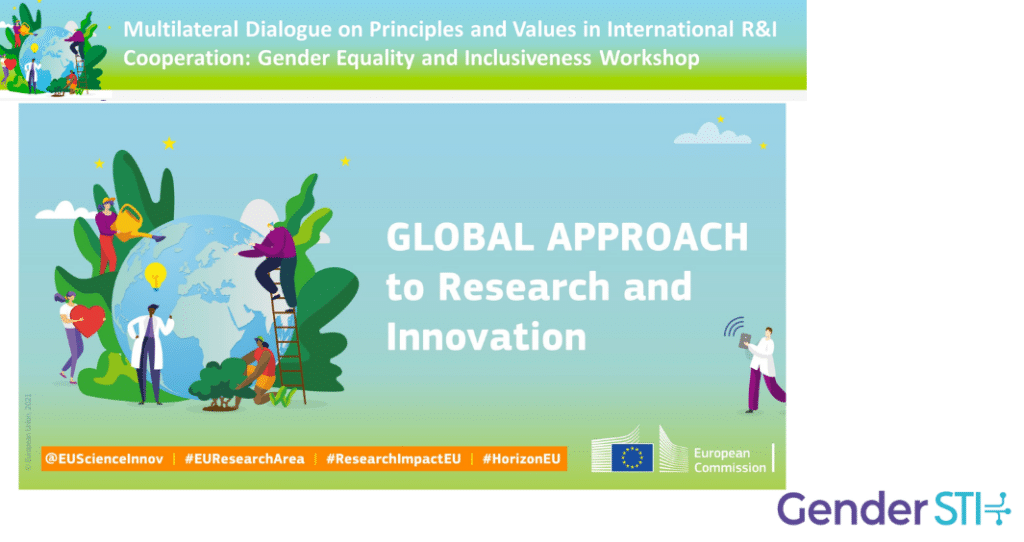Hee-Young Paik was nominated for Gender STI's #WomenInLeadership Campaign, which celebrates women leaders in science, technology and innovation, by Hallym University in South Korea.
She is a board member of the Center for Gendered Innovations in Science and Technology Research (GISTeR) and a Professor Emeritus at Seoul National University in South Korea. Paik served as the South Korean government’s Minister of Gender Equality and Family from 2009 to 2011.
Paik spoke to Gender STI about her experience as a woman leader in honor of International Women's Day 2021.
Can you tell us a bit about your job and your responsibilities?
I am currently a board member of the Center for Gendered Innovations in Science and Technology Research (GISTeR) in Seoul, Korea. Previously, I was the director of GISTeR for five years, from 2016 to 2020.
Did you face any challenges on your journey to become a woman leader? How did you overcome them?
The main difficulty was taking care of family, especially to take care of children, while working as full-time faculty in a university.
What goals do you have as a leader?
To promote women in STEM to become more active in participating in various activities related to government policies, not only in science and technology (S&T), but also in social problems since S&T is related to everyday life.
How would you describe the gender balance in decision-making in science, technology and innovation (STI)?
There is a very low percentage of women in decision-making positions in Korea.
What would you tell young girls and women who would like to become leaders in their professional fields one day?
It is important to think about how S&T can contribute to solve the social problems of today and the future. People’s lives become more and more dependent on S&T; leaders should be sensitive to utilizing technological advances to make people happy.
As you may know, the Gender STI project focuses on promoting gender equality in international cooperation in STI. Do you have any ideas on how we could promote gender equality in this area?
It will be important to emphasize to give more opportunities to women scientists and engineers since the average percentage of women in S&T is low. If there is no mention about including women in the program, it is likely that most of the recipients will be men.
What do you think needs to be done to increase the number of women leaders in STI?
First, we need to increase women in S&T fields. Currently, we have fair proportion of women in biological fields, but not in math, physical sciences and engineering. We need much more advances in technology fields.
Second, we need to encourage women to go into leadership positions. Since women tend to take more responsibilities at home, women in S&T are exhausted, and tend not to prefer to take any positions with responsibilities. We need practical ways to help with housework and family responsibilities so that women in S&T would not hesitate to take more responsibility.
Follow Gender STI’s #WomenInLeadership campaign on Twitter, LinkedIn and Facebook for more great interviews. Join the conversation using #WomenInLeadership, #IWD2021 and #GenderSTI.



